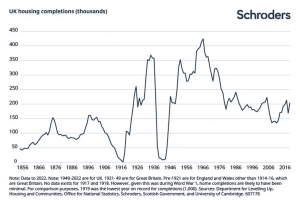When looking to buy dividend stocks, I like to see a track record of cash distributions stretching back many years and preferably decades.
This might sound like a big ask — passive income from any company can never be guaranteed. But there are some FTSE shares out there that have proven more reliable than most.
Passive income powerhouse
International sales, marketing, and support services group DCC (LSE: DCC) is one example. Sifting through the data, I can see the company has not only chucked out cash to shareholders year after year, it’s also hiked the amount on a regular basis.
That last bit is really important to me. I’d rather own a company boasting smaller but rising payouts over one with an enormous dividend yield that looks unaffordable (and often proves to be).
Right now, I can see that DCC shares come with a forecast 4.3% yield that looks set to be covered well over twice by projected profit. The valuation also looks pretty low at just 10 times earnings.
But a bit of context is needed.
Revenue drop
DCC’s share price has lagged the FTSE 100 by a considerable margin in 2024 so far. A 13% drop is in stark contrast to the latter’s 6% gain.
From what I can see, most of this appears to be down to a period of stodgy trading. Back in May, the company reported a near-11% fall in annual revenue thanks to the reduced wholesale cost of energy. More generally, I note that operating margins are (very) low in this line of work.
However, I do like that it has three divisions — DCC Energy, DCC Healthcare, and DCC Technology. This gives it some earnings diversification, which should help to support dividend growth going forward. Indeed, it helps to explain why the £4.9bn cap still managed to lift last year’s full-year payout by 5%.
With half-year numbers due on 12 November, I’m adding this firm to my watchlist for now.
Dividend king
I can’t talk about ‘super-safe’ dividend stocks and not mention Bunzl (LSE: BNZL). The international distributor has been dishing out increasing amounts of cash for decades.
But is this a complete surprise? I don’t think so. The items it delivers are needed by organisations and businesses all the time, even if they’re also things no one wants to spend long thinking about. Stuff like coffee cups, cleaning products, and safety boots.
Bunzl also operates in 33 countries. It’s therefore not overly dependent on any one economy to bring in the money from which those lovely dividends are eventually taken. I find that comforting.
Buy and hold
However, this is another low-margin business and one whose shares currently trade at a price-to-earnings (P/E) ratio of 18. Perhaps this is why sentiment has cooled a little since a record high was hit in mid-September.
The yield also stands at just 2.2%. A FTSE 100 tracker fund offers a higher cash return at arguably much less risk because my cash is spread around all companies in the index.
Then again, Bunzl has compounded value far better for investors over the years. And returns would have been even greater if those dividends had been reinvested.
I consider this to be a great stock to buy and hold. I just need the cash to do so.
This post was originally published on Motley Fool







